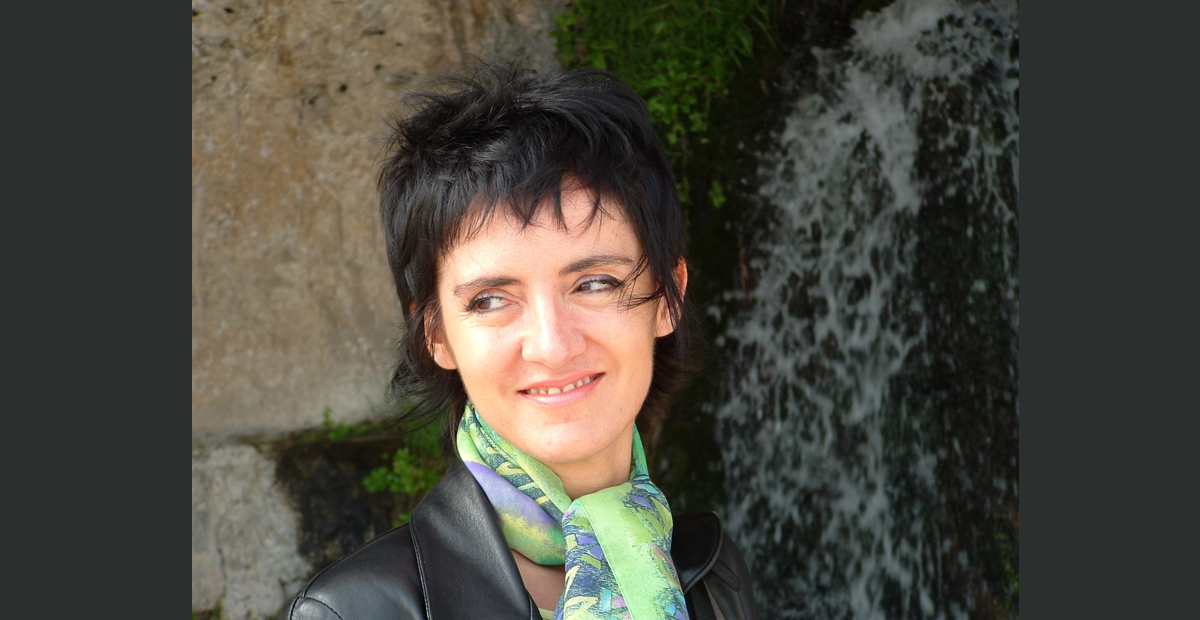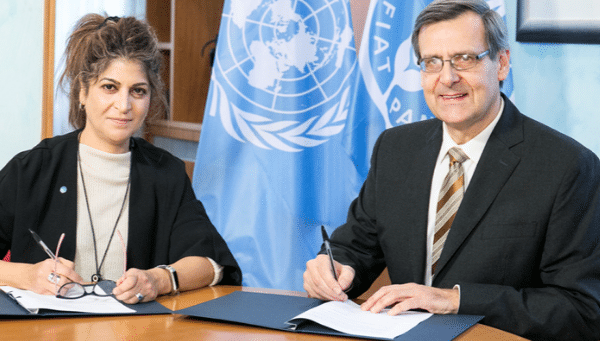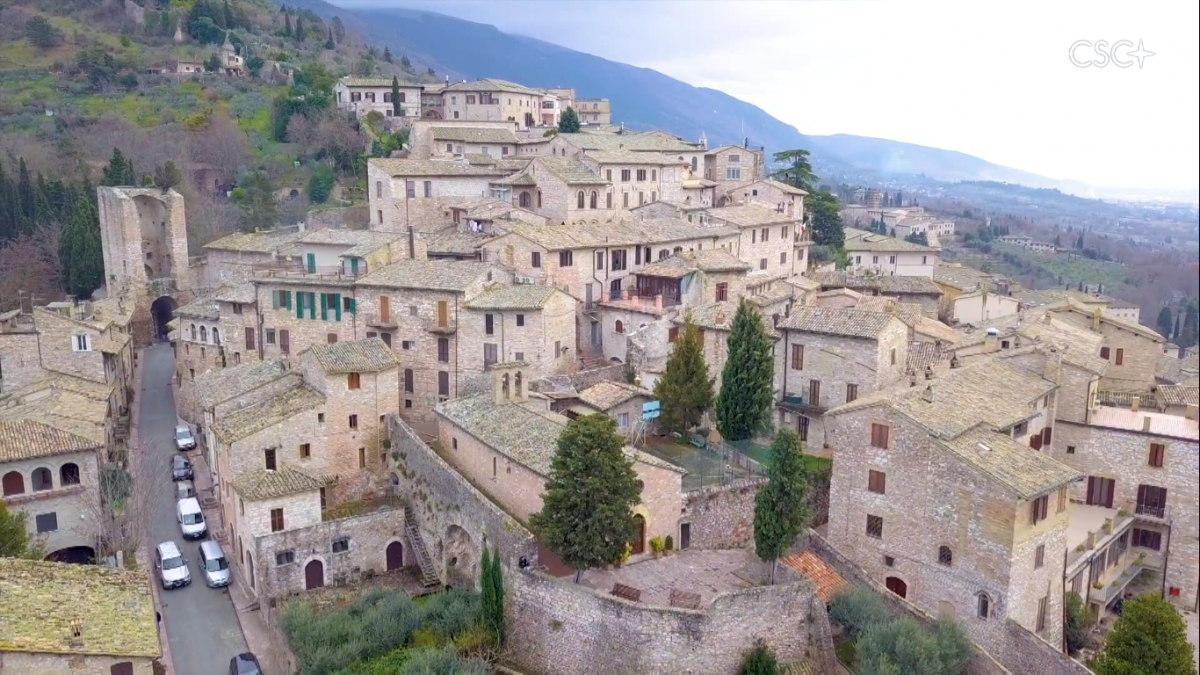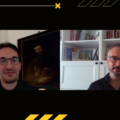
Watch
The glass half full: relationships beyond the pandemic

Relationships in the time of Coronavirus: how do we value them while living through isolation, fear and via technological mediation? What can we learn from this whole experience? We turned to Giovanna Cosenza, Lecturer in Philosophy and Language Theory at the University of Bologna for some answers.
We’re living through a dramatic moment for the whole of humanity, and we’re yet to grasp the full consequences. Technology has become even more central than before to our communication and to finding the strength to survive such isolation and fear. Have we, do you think, reached a point of no return?
Giovanna Cosenza: «Let’s start with a premise: human beings as such are made to touch, to embrace, to feel one another’s presence, not to look at one another through a screen. It’s intrinsic to our nature. Some people and some peoples are more or less spontaneous than others in this regard, but it’s a fact that human beings need to look one another in the eye in order to establish healthy relationships. Arguments and discussions occur, but this basis remains the same. Because by looking one another in the eye we remain close even in our differences, even if through our different cultures we become accustomed to distances of varying intensity.
Now, even before Covid-19, we were experiencing hard challenges in this relational capacity, which, I repeat, should be natural to us. There are those who flee from relationships, who are unable to look other people in the eye and can’t reveal themselves to others. Many young people run the risk of getting too used to avoiding this aspect of relating to others, especially in a period when we are by necessity being “filtered” by networks and technology. Over time, this will tend to inoculate a certain malaise within us and separate us even more, because we get used to something we are not designed for as human beings. But we must make a virtue of necessity. So, without demonizing anything, in fact appreciating what technological resources can offer us, we must never forget that our true origin and source of wellbeing lies in authentic relationships. When everything is over, we must remind ourselves of this».
When everything is over … But in the meantime?
GC: «Let’s learn to use these means to value our relationships. Never as in these days are we so immersed in video chats, calls of all kinds, bringing all sorts of confusion between private and professional life. People enter into your home at all hours and see how you’re living, sometimes your family appear as a background to your calls. And every thirty seconds there’s some kind of distraction which doesn’t help the relationship you’re living in that conversation. Submerged in this continual and confusing connectivity, we’re taken up by a thousand different things while supposedly communicating with someone. Whereas no, we must rediscover boundaries, a certain order, so we can refocus our attention on the relationship we’re living. For example, I isolate myself. If I’m speaking with one of my students, I try to find a space where neither my child nor my husband will interrupt, at least for those 10 minutes, so I can completely dedicate myself to my student in that time. If I explain properly to my child that Mama has to work, he can understand and doesn’t feel neglected. I dedicate myself completely to my work and after that I will be all for my child. Now, not all of us can do this. There are many challenging environments where it’s impossible to find your own space. But even in conditions like these, it’s important to learn how to dedicate your attention whole-heartedly to one person at a time, to one action at a time. That’s how we can regain some peace, a sense of relationship, a sense of distinction between private and public life, with healthy “boundaries” which can help us develop a sense of caring for one another. This is the only way we can hope to save our relationships».
Paradoxically, it could be said it’s only by learning to be alone that we learn to value relationships?
GC: «Yes, if you know how to stand on your own two feet on your own, if you know how to deal with solitude and all that comes with it, then you don’t lean on relationships, you don’t utilize them for other purposes. You relate to others in a healthy way. You get something from the relationship, of course, but you are also capable of giving. Let me make myself clear. It’s not that these problems didn’t exist before. But the Covid crisis has made them more pronounced. That’s why it’s important to refocus our attention on one another in a way that we’ll also be able carry with us afterwards. We mustn’t give in to all our distractions».
How can we use our words as a weapon to deal with fear, now and in the future?
GC: «Fear cannot be dismissed just like that. It must be recognized and acknowledged: fear with all its expressions as tension and anxiety. Whereas we experience ‘anguish’ over undetermined factors we can’t identify, ‘fear’ is caused by something concrete. So the first thing to do is recognize and distinguish between the two, and then use our words to express the emotion and process it along with the others. It’s not easy. Because both in private and in public, it’s more usual to talk about things: numbers, for example, in this period have taken the place of reality. But numbers can be interpreted in a thousand different ways: by focusing on the number of deaths, or on the number of people who have recovered, for example. But there are persons behind the numbers, there are dynamics to be taken into consideration. Each one of us must get better at sharing these dynamics which reach behind the numbers, and discuss them with others, in order to exorcize the fear, calm the angst, but also to see things in a more objective light».
We’re starting to see the words we use in a more objective light. You’re an expert in language. The slogan “It’ll all be fine” has been bandied around for weeks now. But for many people, it’s not been fine. And they don’t know what’s going to happen in the future ..
GC: « Saying “It’ll all be fine” doesn’t deny that something has gone wrong. I lost a dear friend before the pandemic and deaths are always of persons, not of numbers. From the time it was discovered how seriously ill he was, I was close to him, and kept on telling him, “It’ll all be fine”. I have to say, those of us accompanying him were divided on this positive approach. My idea was “maybe it’ll be three years rather than three months”. But other friends said, “it’s going to end badly”, “I don’t recognize him anymore”. And then our friend did die, so from that point of view, I was wrong. But to tell you the truth, I would do the same again. I believe that even in those last two months it was right for him and for me to have a constructive attitude, which didn’t deny the gravity of the situation, because this permitted us to live through that period as well as possible. I’m all for saying “It’ll all be fine” without denying the death and desperation of what’s happened and is happening. Because saying things out loud can also nourish trust, trust in a sense of “us”. On our own, we won’t get very far. And an authentic relationship should be able to demonstrate the truth of this. We’re not self-sufficient, not even with all the technologies in the world. If we really understand this, our words will find truth, even in that short phrase “It’ll all be fine”. That’s why I maintain smiling with my dear friend right to the end was the best way for me to accompany him, because I really believed it, I wasn’t faking it. I would do it all the same again, truly».
Do we run the risk of falling into a kind of facile optimism?
GC: «One day I went for a walk and I shared on WhatsApp the image of two youngsters who were practising a choreography in the dark, distanced from one another, with one of those stereos still used by rap culture between them. They were dancing without the volume on full, very respectful of the situation, alone. For me it was a brilliant illustration of what it means to say “It’ll all be fine”. But for others, like some of the friends who received my WhatsApp message, the same image represented something very ugly! Because in it they saw an empty city rather than the two young dancers. So, it’s not optimism, it’s a different point of view on a particular situation. It’s seeing the glass half full, communicating it to others hoping to help them, but then leaving them free to see it as half empty if they so choose. But, you know, that’s life, as a baby is born, another person is dying …»
What you’re saying could really help us to recognize the “growing forest” more than the “falling tree”?
GC: «It’s a task awaiting us every day: to make our reality something beautiful, whatever it may be. Certainly, in this period we’ve seen many people die, we look death in the face, which seems to be a growing taboo. So, this approach could help us make our peace with death, giving us a new taste for the life we must face in the small things of every day. If you don’t understand death, you can’t get a grasp on life. And if this pandemic can help us to reach a more positive attitude to our reality, it would really help that change of mentality which is going to be so necessary to face up to phase 2».
Over the past few weeks, many have written that the Coronavirus can help us rediscover solidarity, neighbourliness, even fraternity between people and peoples. Do you think this is the case?
GC: «I hope so. It depends on many factors, and on the time at our disposal. You need to live within an experience for a sufficiently long amount of time to be able draw out its meaning. It seems like the time living with the virus is like this, and I trust the solidarity we’ve been able to have on the one hand, and which we’ve also lacked on the other due to isolation in lockdown, can lead us to rediscover the value of what we have in our hands, and lead to a gradual acceptance of it as a positive intervention in our lives».






